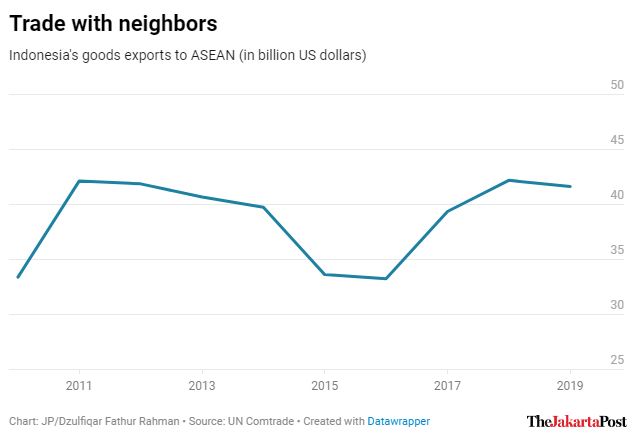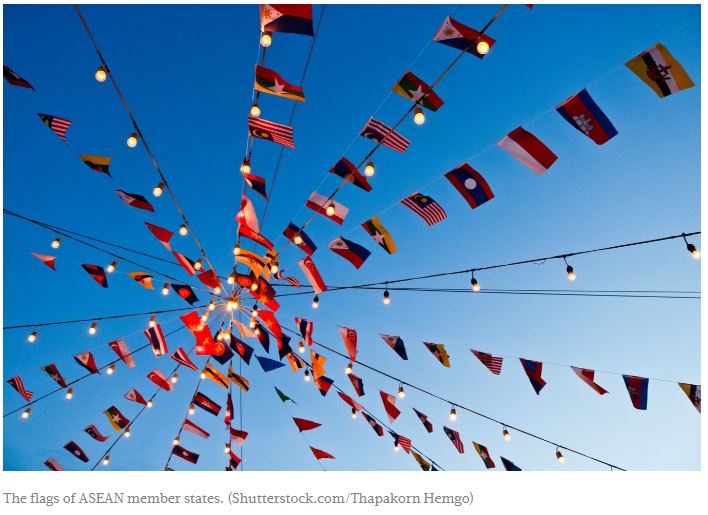ASEAN ministers to strengthen regional supply chains, trade digitalization
ASEAN economic ministers are committed to strengthening regional supply chains and improve trade digitalization to spur trade and investments, as well as cushion the impact of the ongoing health crisis, according to Indonesian Trade Minister Agus Suparmanto.
The commitment came after the 52nd ASEAN Economic Minister (AEM) meeting on Tuesday, in which ministers gathered virtually to discuss the impact of COVID-19 in the region’s economy, among other issues.
“Indonesia supports the ASEAN’s joint effort to face COVID-19, particularly the economic pillar through the strengthening of supply chains and utilization of digital technology in trade,” Indonesian Trade Minister Agus Suparmanto said in a statement on Wednesday.
The ministers have also finalized an ASEAN Digital Integration Index, which maps the readiness for an integrated digital economy among ASEAN members.
Meanwhile, the region’s top officials finalized the terms of reference for the establishment of the Network of Innovation Centers in ASEAN, which would connect innovation centers across the region to bolster the ecosystem for start-up development in the region.
Indonesia has recorded a 5.32 percent year-on-year economic contraction in the second quarter, the worst since 1998 financial crisis, as the components of economic activity fell significantly.
Meanwhile, movement restrictions implemented in various countries have also hit international trade, with the World Trade Organizations (WTO) projecting global trade volumes to contract by between 13 percent and 32 percent at worst this year.
Indonesia, however, has managed to book a strong trade surplus as imports fell deeper than exports. The country recorded a trade surplus of US$8.75 billion as of July compared to a $2.15 billion deficit logged in the same period last year.
To revive the region’s trade, Agus and his regional peers also approved the implementation of a protocol to simplify certification bureaucracy in the region, called the ASEAN Wide Self Certification (AWSC), which enables certified exporters to declare the origin for their goods.
The implementation will start on Sept. 20.
“The utilization of this facility will boost Indonesia’s exports to ASEAN,” Agus said.
Indonesia’s merchandise trade with ASEAN fell 1.22 percent to $55.72 billion in 2019 from a year earlier. Exports to the region were up by 6.42 percent to $41.79 billion, while imports were down by 3.87 percent.

The country’s top export to the region was coal, trailed by palm oil, petroleum gas, crude oil and rubber.
To minimize technical hindrance in trade, the ministers also committed to signing an agreement on the mutual recognition of automotive product-type approval for products produced within ASEAN.
“This is based on the immense benefits for the auto exporters in ASEAN, especially in Indonesia. This agreement will remove the need to repeat the procedures of the test for auto product types in export destination countries in ASEAN,” Agus said.
He also proposed adding a tracking feature to the ASEAN Single Window, a feature that is already adapted by Indonesian National Single Windows (INSW) for the ease of exchanging trade-related documents.
Source: https://www.thejakartapost.com/news/2020/08/27/asean-ministers-to-strengthen-regional-supply-chains-trade-digitalization.html


 Thailand
Thailand




